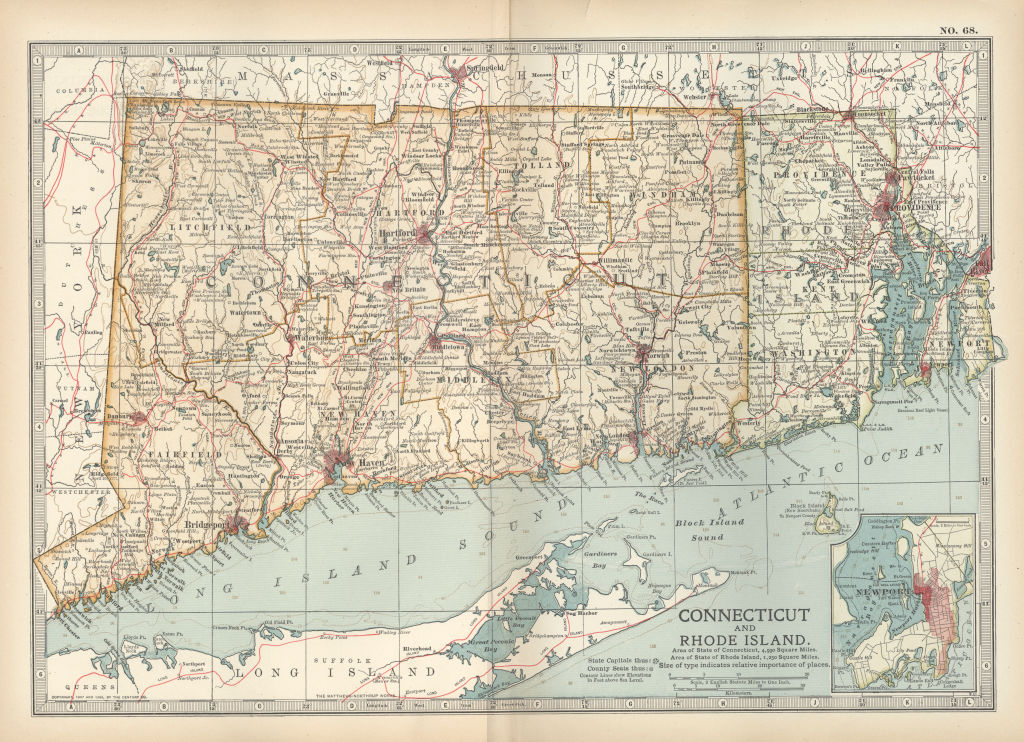Great Old Laws: Dress Codes, No Testing Horse Speed on the Street

Rhode Island has decided to attack old, obsolete and archaic laws that are taking up space in the rulebooks there—laws no longer necessary in the operation of the state.
For example, there is a law, passed around 1913, saying that when you are driving a car and want to pass, you have to shout or honk your horn. Don’t do it and an officer can get you fined $10. It’s not enforced today.
Another law forbids testing the speed of your horse on a public highway. Not enforced today.
Yet another law says you can be arrested if you serve as a second in a duel and one of the participants, as a result of that duel, is killed. Not enforced today.
In the town of Barrington, Rhode Island, a law permits the citizens to haul two cartloads of seaweed a day off the beach, but those who are not citizens of Barrington are prohibited from doing so. Seaweed was used as house insulation back in the day.
There is a law that says you can be arrested if you interfere with any torpedo testing that is done in the waters of the state of Rhode Island. This is not enforced today, but it is probably a good idea to keep it on the books in case torpedo testing starts up again. Such a thing took place during World War I and again World War II.
Here in Montauk, the Navy tested torpedoes during World War II in Fort Pond Bay. But I doubt there were any local laws passed about it. It seemed obvious to keep away from torpedoes in Fort Pond Bay. One day, an errant torpedo came up onto the beach of Fort Pond Bay near the dock in front of Duryea’s Lobster House and scared the daylights out of everybody. The late Perry Duryea Jr. told me about this years ago. He would have known. After it came up, the Navy came and got it and sent it back on the train to the factory in Queens to be rejiggered, he told me.
There is only one old, archaic law in the Hamptons that I know of, but I am sure that anybody combing through all the ordinances in our towns could find others. The first settler in what became the Hamptons came here in 1639. That doesn’t quite match Rhode Island’s 1636, but it’s close. Here, during these winter months when town officials find they have some down time to rummage through the rule books, they might find a gem or two.
If they do, or if anyone else looks and finds one, they should pass it on to me at dan@danspapers.com. If I get enough, I’ll write a story about our odd laws.
The archaic law I know of is from Southampton Village and is called the “proper attire” ordinance. Basically it says you have to cover up your breasts and butt when you are in the village, except if you are within 500 feet of a body of water. I will reproduce the ordinance in its archaic grandeur shortly, but for the moment I would like to point out that when this ordinance was first proposed by the new and very proper summer residents around 1900, there was apparently a considerable discussion about how it should be worded. The 500 feet was on the table. There should be that distinction so that people in bathing suits coming out of the water didn’t get a summons at that very instant. Perhaps 300 feet from the water would be okay? How about 800 feet? Should it just be for the ocean? What about swimming in the lake? The Village must have talked about it. There were three different parts to the ordinance. The vote was taken.
I would also apprise you of the definition of a little-known word in these ordinances. It is a medical term. The word is “areola” and it describes the slightly different color of the outer portion of the nipple.
“#82.14: No person shall appear in a public street in the Village of Southampton, New York, clothed or costumed in such a manner that the portion of his or her breast below the top of the areola is not covered with a fully opaque covering. #82.15: No person shall appear in a public street in said Village unless his or her buttocks and the private or intimate parts of his or her body are covered with a fully opaque covering. #82.12: No person shall appear in a public place in said village, clothed or costumed in a bathing suit, except within a distance of 500 feet of a body of water, unless such bathing suit is completely covered with fully opaque outer clothing.”
You will note that the ordinance applies to both men and women.
In the summer of 2015, I wrote that Dan’s Papers had partnered with the Village of Southampton to catch and ticket people for violating this law. Today, there are signs throughout the village noting the need for “proper attire.” The signs were there then. Near one such sign, not far from the Golden Pear, I reported that the Village set up a webcam to view the pedestrians and that Dan’s Papers would be streaming the video live on danspapers.com—and requested that the public watch and, if they saw a perp, grab a screenshot from the stream and email it to areola@dansites.com.
As a result, I then reported, beginning on July 2, 2015, a total of 87 people were identified, issued summonses and required to pay the $175 fine (they could have been fined $1,000 and spent up to 15 days in jail), and15% of this money was then paid as a bounty to the person sending in the photo and an additional 5% to the person identified.
And then, around August 6, the webcam was vandalized. It was never replaced. Well, it was a nice hoax, and we had a little fun with it in the paper, anyway.
As for Rhode Island, the law that would eliminate the old ordinances there is not yet in force. It is a bill, however. Indeed, it is five bills. Sponsored by House Majority Whip John Edwards, four of the bills specifically identify the ordinances in place that I’ve mentioned at the start of this article. And the fifth sets up a committee with the General Assembly called the “Joint Committee of the Repealer,” which would consist of three members from the Senate and three from the House to recommend laws that ought to be repealed either by executive order from the Governor or by consideration of both chambers at the start of each year.
Ah, paperwork and more stuff to do.
If passed, I expect that someday some liberal group in Rhode Island will order the repeal of the Joint Committee of the Repealer as something ripe for repealing for being completely unnecessary.



